Book Reviews by Genre: Contemporary
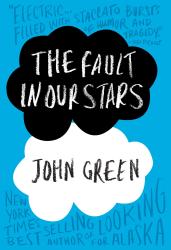
I love this book! The fault in our stars is a book that really tugs at the reader’s heart strings. The book starts off with a 16 year old named Hazel Grace meets a cancer survivor, Augustus Waters. Hazel and Augustus begin to fall in love, but they don’t want to share their feelings with one another. Throughout the novel, Hazel and Augustus share many similarities (an example being their favorite book and favorite author). This romance story is on another level. It’s heartbreaking and astonishing at the same time. Every time I turned the page, I did not want the story to end. The entire story is so well composed and the writing is absolutely breathtaking. John Green did such and amazing job writing this beautiful tale, you really feel like you’re in the story. The challenges and hardships Hazel and Augustus face lead them to new and better horizons. The Fault in Our Stars is an incredible romance novel that everyone should read one day. From the storyline to the imagery, this story is the best romance novel in my book.
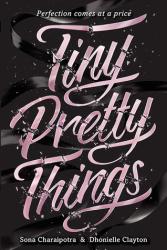
Tiny Pretty Things surrounds an exclusive ballet school in Manhattan, where three prima ballerinas struggle for the top. There's Bette, whos been the star of the studio ever since one of her competitors had a mysterious fall. There's June, a half-Korean dancer that struggles to keep her weight down and head high as her mother threatens to pull her out of the studio. And finally, there's Gigi, a newcomer and the only black dancer in her level. When Gigi lands the star role, the jealousies and insecurities of these girls will pull them deeper and deeper into corruption and rage, until one of them crosses a line they can't return from.
The writing of this book is really what propels it to the top. I have never had that much passion or interest for ballet, but this book seems to seep love for it. The description of dancing from many of the girls make it seem as though they are dancing in your room. You can almost feel the lightness of the steps, the satisfaction in perfect movements. The prose makes you feel as if you are flying alongside the dancers. However, it isn't a blind adoration, which only makes the book more interesting. The girls are told to keep their weight up but pressured by their instructor to stay as low as possible. They are sexualized by the people around them and by themselves in attempts to be the perfectly beautiful ballerina. There are racial stigmas, as the book describes how ballet adores the completely white stage, "ballet blanc", which includes the dancers themselves. The Asian girls are often shoved into roles that are "Oriental," and Gigi worries about how she stands out on the stage. In short, the story shows all the beauty of ballet, while acknowledging the harmful obsession with beauty and whiteness that has plagued ballet for centuries. The characters of the book are also fantastic. I love how so many of them are deeply unlikeable, but we get to see the reasons that they fight so hard for ballet. No one is completely perfect. Absolutely no one is blameless. Their actions impact each other in so many different directions, and the levels of miscommunication and tragedy make the drama nearly Shakespearean. In particular, I love the attention given to June, and how she was allowed to devolve despite sympathetic beginnings. Over and over the reader believes that she is going to be redeemed, but she just gets worst, and it tears you apart. I also enjoyed how the author went in-depth to the imposter syndrome that June experiences as a mixed Asian, which is very accurate.
However, this book does have a lot of problems. For one, the girls in this book are sixteen. That doesn't come through at all. I could see how the book is trying to show how ballet's sexualization and pressure causes these girls to mature before their time, but its just really weird reading about kids that are younger than me going clubbing and sleeping around and trying to destroy each other via psychological warfare. Again, this might be intentional, but it makes these girls seem like even worse people. I could see adults in careers doing this, but I don't thing juniors in high school would go this insane over one role. Furthermore, while the main three get excellent backstory and reflection, a lot of the other kids do not. One girls whole motivation for hating and horrifically bullying another girl is that the bully tried to kiss the girl once and now the bully is worried that the other girl will out her. This is stupid for a lot of reasons, mostly because I don't know why someone would antagonize someone that has potential black mail on them. A lot of the margin characters in this book are pretty underdeveloped and have bad motivations for doing pretty horrible things, which makes them look pretty stupid at best and plain cruel at worst. Finally, I wish Gigi had been a bit of a worse person. It would've rounded out the three girls as all being flawed people, and it would've given catharsis for a lot of the horrible things Gigi endures because of the other girls. Instead, she doesn't do anything wrong, and I spend the entire book being so mad at what was happening to her to the point where I lost a lot of sympathy for the other girls and their problems. I think it would've been amazing if Gigi had been allowed to become more corrupted by all the jealousy and cruelties around her, and had to fight her way back to the good person that she's always been. Instead, she barely changes besides becoming more and more beaten down by the things that are done to her, which gets frustrating.
All in all, this was a very well written book with a tight plot and great characters. It just had problems with the side characters and some overwrought drama. I would recommend this book to anyone who is interested in ballet, revenge, tragedy, and some excellent twists!
Reviewer Grade: 12
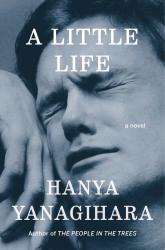
Until this book, I had not read anything that had impacted me this much. It was an absolutely heart wrenching book that was so beautifully written and was overall amazing. I love books that touch on the dark and uncomfortable parts of life and the human experience that aren't talked about very often and this is one of those types of books (check the trigger warnings before reading it because there are a lot of tough subjects in it).
A Little Life follows a man named Jude throughout his whole life. It focuses mainly on him and his friends when they met in college and follows them beyond, well into adulthood. It has flashbacks to Jude's childhood and the trauma he went through and how he coped with that trauma and how his relationships were affected. It has a strong message about friendship and has underlying themes of dealing with grief and abuse along with other tough subjects. This is hands down the best book I have read in a long time. The characters were incredibly developed and they felt real, it was one of those types of books that took me a long time to recover from after I finished it because I felt so close to the characters and the story. Even though some of the topics covered in this book are tough and uncomfortable, they are important to talk about and I recommend this book to anyone who enjoys raw and slightly gut wrenching books.
Reviewer Grade: 11
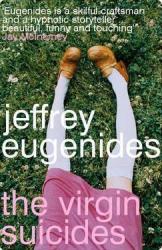
The Virgin Suicides is the elegy of the Lisbon girls, from the perspectives of the neighbors that are still haunted by them. The Lisbon family lives on a quaint suburban street in the Sun Belt, drenched in sunlight and white-washed shingles. Then one year, every Lisbon girl, starting with Cecilia and ending with Mary, commits suicide. This book is the observations and meditations of the boys across the street, the ones who loved them, who obsessed over them, who objectified them, and who watched them die one by one. The girls are doomed from the opening lines. The only question that remains is why they did it, and why our narrators can't let them go.
I read this book because I was told it was a staple of dark academia. It is not, no one here likes school. In reality, it is a treatise on girlhood, in all its insubstantial suffering. The first thing that struck me was the way the author sets the mood immediately. The entire book is dripping with malaise, the suffocating nature of sisterhood and parenthood on full display whenever the Lisbon house is described. The brief gasps of outside life are bright and crisp, while the references to the current day, middle-age life of the narrators is sad and listless. I wouldn't say this book is pleasant to read, but it is gripping in its complete commitment to its mood and setting. On that note, the choice of the author to tell the story entirely from outside perspectives was fascinating. The narrator is only described as "we", as the group of neighborhood boys who obsess over the girls in both childhood and adulthood. One conflict in the book is wondering if we are meant to sympathize with the boys who are scarred from the suicides, or see them as a commentary on the ways that the world seeks to capture and define teenage girls. I ended up seeing it as the latter, which likely made me view this book in better light than many of my peers. The boys actions always have an air of perversion about them, and at the end they seem to realize that all their breaches of privacy and decency have brought them no closer to understanding the girls. Another thing I liked about this book is the way that the girls are given a kind of privacy of thought from the narrators and the readers. Every attempt at scrutinizing their reasoning or emotions or motivations is always followed by a caveat. Nothing is certain with the Lisbon sisters, just the way nothing is every certain when we view the actions of others. The unknowability of their tight knit group gives them a dignity that their neighbors and community seem to want to violate constantly. This book is also a clear censure of suburbia. The neighbors try to do their best to help when they can, but still grumble amongst themselves about the Lisbon family leaving the leaves in their yard the fall after their youngest commits suicide. The great debutante balls and dances of the south are in full swing, but there is an undercurrent of corruption and distortion to the dancing and dating. The sexualization of the girls is also rampant, which, again, makes the book a lot harder to enjoy if you don't see it as a choice by the author in order to comment on it. In short, the suicide of the girls seems like a catharsis, a response to the disgusting and decaying world around them. Everyone around them represses their emotions, from their parents to the boys enraptured by them to their teachers to their peers. They are the only ones who get to set something free. The juxtaposition of the wailing EMTs to the quaint, straining neighborhood further demonstrates their freedom, even in their death.
This book did have problems. A lot of stuff is uncomfortable to read, even if viewed as a deliberate choice. The story often takes winding tangents that serve little purpose besides demonstrating the boredom and trivialities of suburban life. Still, the book is still a fantastic meditation on what its like to be a teenage girl, in all the wonderful and ghastly ways. I would recommend this book to anyone who is looking for good setting, shocking stories, and a good mystery to carry with them!
Reviewer Grade: 12
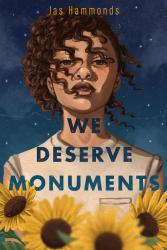
We Deserve Monuments follows a seventeen-year-old girl named Avery as her and her family leave Washington, D.C. to return to her mother's childhood home. Avery's grandmother is dying, but somehow her mother and her grandmother still can't bring themselves to reconcile over decade-old, hidden arguments. While Avery struggles to adjust to a new school and new friends, she must also try to untangle the deep roots of family resentment that could keep her family broken forever.
This book is beautifully done. The prose is something out of a dream, and stays light and airy in the same way that small towns seem to hover in a landscape. The past is interwoven into the landscape to create a truly textured story. Every moment is given the weight and wonder that it deserves, and is a glorious reflection on the raptures of youth. Honestly, my only issue is the plot. I feel like the story would've benefited from more focus on Avery and her family, and less on the drama with her friends. I appreciated it in the beginning, but I felt like things fell apart so quickly that I couldn't get invested in what was going on. Avery herself was sympathetic, but both her and every other younger character in the book makes some truly stupid decisions. It worked better for Avery, since it showed her struggling to grow up and be an adult in her family situation while still embracing her teenage years, but I'm not sure if anyone else has enough of an excuse. With the three generations being examined, I wished that Avery's mom had gotten more of a spotlight in the story instead of whatever was happening with the kids all of the time. The story was still tight, and I felt like the ending was deserved and poignant.
I know it sounds like I didn't like this book that much, but that's just because its a very well done story with lots of style and a lot of things to nitpick. My opening notes still stand: this is one of the most poignant and affecting books I've read this year, with a lot of heart and charm distilled into it. I would recommend it to anyone that wants to read some beautiful prose and cry over family!
Reviewer Grade: 12
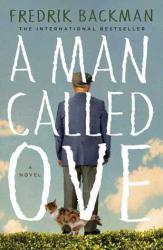
If you consider yourself an experienced reader, you can probably state that there are barely a few books in this world that can touch your heart. You went through hundreds of human fates written on thousands of pages; you can easily predict the plots of love stories or detective novels; you can easily identify what figurative devices the author used here and there to make you feel sad, hopeful or amused. You feel so confident and think that nothing in the literature world can surprise you anymore, but then… you open this book, A Man Called Ove by the Swedish author Fredrik Backman. The main character has nothing to do with standardized cliche characters that we’re used to. It’s an old grumpy man called Ove, who believes that nobody in this world knows how to do their job anymore, but instead everybody tries to get more money for less effort. Not only is he deeply convinced in this, he also never skips a chance to remind this to everybody he meets and to inform them as well which rules they have broken and which lessons they have never learnt. He lives all alone, even his wife has left him, and from knowing Ove for about 50 pages we think we know why. But then the curtain opens for the readers, and we learn a beautiful and tragic story of Ove and his wife Sonja. Two absolutely different personalities, who tied themselves together for life with bonds of love, patience, understanding and selflessness. But now Sonja is gone, she’s gone forever and Ove doesn’t see any sense in life anymore. He tries to commit a suicide several times to reunite with Sonja, but all of his attempts fail once the new neighbors move into the house next to Ove’s. An absolutely clumsy IT-specialist Patrick, his pregnant Iranian wife Parvaneh and two of their daughters change his life and become a barrier for all his pessimistic plans. Unexpectedly and against Ove’s will, he rescues a cat and becomes his owner; takes Patrick to the hospital by his precious car Saab; helps a teenager Adrian to fix a bike for the girl that he likes; lets a homosexual barista, who was kicked out of the house by his very conservative father, stay over; fights for Rune, the man who’s been his main opponent the entire life, against Men In White Shirts; teaches Parvaneh driving a car and buys an iPad for her older daughter. Even though he denies it, Ove becomes friends with the entire neighborhood, remaining just as grumpy, rude and straightforward as he’s always been. One day he almost dies and that puts an end for his attempts to get to Heaven prematurely. He finally realizes that there is life after death (after Sonja’s death) and there is always something to fight for.
An amazing book that will make you laugh and cry. Ove’s sassiness and barbed character will pull up a smile on the readers faces and his endless loyalty to Soja will move even the biggest skeptics.The characters are bright and strong individuals that follow their principles and show us the world of their beliefs, so different, but never false. This novel teaches us the importance of friendship and helping each other. It shows us that even in the darkest times of life we can find light in people around us.
Reviewer Grade: 12
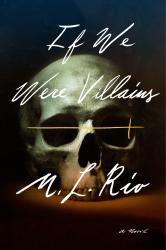
Although I was skeptical at first, I quickly fell in love with the bizarre world of Dellecher and its fourth-year theater students. The worldbuilding and three-dimensional characters transcended expectations. I read this novel in a mere 3 days, and it didn't take long to get me hooked. I'm obsessed the way these students were with Shakespeare. Unfortunately, this beautifully written novel has some glaring flaws that it wasn't poetic enough to cover. The plot started off strong but lost its way in the whirlwind of the theater world. It veered towards a tangled romance before reluctantly wandering back to its roots abruptly before the novel ended. I would've liked more development in any and all realms besides Oliver and Meredith. In fact, I would happily read a series of books detailing these seven students' journey through university. After about six hours spent reading, I feel I only have a vague idea of these characters, and I'm on the edge of my seat for more. Regardless, it was a thrilling ride, and I'm optimistic for Rio's other works.
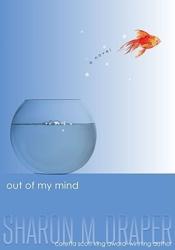
This book is about a girl named Melody, who has cerebral palsy. The internal monologue and messages throughout the book are extremely wholesome. This book is a great lesson for numerous reasons especially for teenage readers. The audience for this book is more directed towards teens, but I believe anyone can read this and truly appreciate the novel. The book is extremely well written and enjoyable. One lesson in the book is essentially saying everyone needs a friend. Melody is an outcast due to her disability, and her inner thoughts show how much depth her character has. If you’re looking for an amazing read, I highly recommend picking up this book!
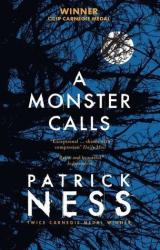
A Monster Calls is excellent for what it does. A young boy battles with his feelings over his sick and dying mother. He is haunted by a certain horrible nightmare. A monster outside his window causes havoc on various levels to evoke his true thoughts. He isn't afraid of anything, because nothing is scarier than his nightmare. The story reads similarly to a fable in that it weaves itself perfectly neatly. There are no subplots, extra characters, or excess in this novel. Instead, it marches on to the structure that one would expect, in three acts, each with appropriate escalation. The structure of this novel was refreshingly minimalist, and it helps highlight Conor's strengths and flaws in a powerful way. A Monster Calls is a short read, but it is heartbreaking and beautifully done.
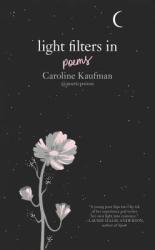
Light Filters In is one of the rawest books I have ever read. The author gave us a full view of her mind, including every ugly scar and scratch we are too afraid to talk about. This get’s heavy, but in a way that’s very important today. Not only does it show the pain of trauma and poor mental health, but it lets us see Kaufman heal. If you are struggling, or have in the past, this book will touch you in a way not much else can. Wonderful read. (8th grade)
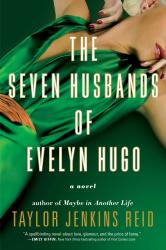
I had heard a lot of wonderful reviews about this book and the book definitely met every one. The book focuses on the scandalous life of the mysterious and legendary actress Evelyn Hugo as she retells the story to unknown journalist Monique Grant. During her retelling, the story unfolds that connects everything, leaving the readers still wanting more. I was happily surprised reading and would love to get the chance to be able to experience the story for the first time again. I enjoyed the old timeliness of Hollywood and the resemblance to Judy Garland and Marilyn Monroe. If you want to be engrossed by a book with twists and turns till the end, then this book is for you!
Reviewer Grade 12

The book Max’s Story is a book within the ‘A Dog’s Purpose’ book series. This is a fiction novel about a small Yorkie-mix who needs to find his purpose in New York City. Living with family in an animal shelter, it becomes apparent that Max must find a new home. This novel was very heartwarming the first time I read it. A small dog with a huge heart is brought to life while reading the novel. I became overwhelmed with a sense of empathy wanting this dog to have the happy ending he deserves! Want to find out if it is a happily ever after? Read the book if you love heartwarming fictional stories!
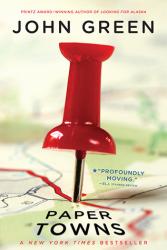
Paper Towns by John Green is a thrilling, coming-of-age mystery. Readers get to solve the mystery along with the main character. The book provides interesting insights and a sense of grounded wonder and sparks deep thought about our own reality of life and inevitable death. It follows senior Quentin Jacobsen on a wild journey with dreamy but unattainable childhood friend later drifted away, Margo Roth Spiegelman. The mystery that surrounds her the next day is sure to excite readers with fear but also curiosity as they journey with Quentin inside his mind on the sublime adventure to uncover her whereabouts. On many occasions I found myself unable to stop reading even though the book took me into the late hours of the night. I would definitely recommend this book for anyone looking for an exciting venture into the unknown!
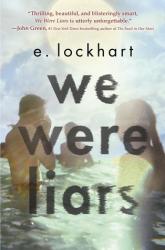
We Were Liars is a mysterious young adult novel about a wealthy family who spends every summer on their private island. The story focuses on the main character, Cadence. After Cadence suffers a head injury during one of the summers, she cannot remember almost anything from that trip to the island. The next summer things are very different and Cadence has to try and remember why.
This book is quite a page-turner. As Cadence slowly remembers more and more details of the mysterious summer when she suffered her head injury, it is nearly impossible to put the book down. However, not all page-turners are necessarily great books. The story of We Were Liars may have been intriguing, but the content was not very substantial. There didn’t really seem to be any morals, and if there were, they weren’t very clear. Things just happened throughout the story, and although it was a mystery, nothing was truly deep or thought-provoking
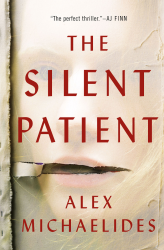
Initially, the premise of this book caught my attention: a psychotherapist sees a patient who murdered her husband years ago (as revealed in the opening line) and has not spoken since. Without spoilers, the story is told in a fascinating way, and Michaelides makes the most of his creative freedom in the medium of novels. Right after I finished reading, I thought the book perfect for what it sought out to do; however, upon further reflection, I feel it missed the spark that makes a good book. Yes, the story was interesting and the flow of events was steady, but by the last third I felt there wasn't enough struggle or buildup to make the progress with Alicia impressive. The novel told two stories simultaneously (the one of Theo's wife and the one of his patient), which was a great artistic choice, but I think that left each individual plotline underdeveloped in the 300 page novel. The Silent Patient is well-written, organized, and unsettling. Although I struggle to grasp the greater message behind the nuanced story Michaelides told, I definitely enjoyed reading it.
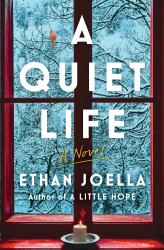
A Quiet Life by Ethan Joella is an emotional, heartwarming story about human connection. Joella’s story tackles grief and loss, all the while remaining light-hearted and hopeful. A Quiet Life takes on the perspective of three different people, all struggling with their own hardships and trials. Chuck, an elderly man mourning the death of his wife, must decide whether or not he should venture back to their vacation home for their yearly trip. The pain is too much to bear, and imagining himself being there alone is heart wrenching. Ella, a single mother working a newspaper job, is trying desperately to find her missing daughter. Kirsten works at an animal rescue and tries her best to serve the community. However, after the quick and tragic murder of her father at a convenience store, Kirsten can hardly find the light in life again. A Quiet Life shows the intricacies and hardships that come with loss, all the while connecting every missing piece, and showing us how togetherness is what keeps us afloat.
(Reviewer Grade: 12)
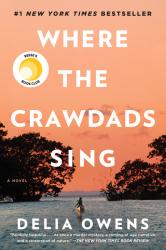
Please believe me when I say, this book deserves the hype. It is genuinely one of the best books I have ever read. The storyline was unique, the pacing was perfect, and the characters were so interesting. Kya is a girl living in the marshlands of South Carolina who is abandoned by her family at a very young age. The book follows her journey to survive, using nature's resources and a few memorable lessons from her mother to become a strong and capable woman. Despite this accomplishment, Kya is labeled as an outsider and is linked to a cruel murder, whose ruling will determine if she will ever grow beyond the constraints of others' opinions. Kya is a character with much perseverance, and her gratitude for the simplest of things is a lesson to take to heart. The friends she meets along the way are also patient and caring. The jump between timelines kept things interesting, and the two dates finally colliding into one made it impossible to put the book down. It is worth reading this book for the themes of child psychology, social rejection, appreciation for nature, and much more.
Grade 12
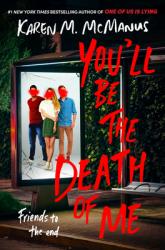
You'll Be the Death of Me was disappointing to say the least. McManus' other book, One of Us is Lying, had fascinating characters and a clever plot. This book felt like a knock-off. Ivy, Mateo, and Cal are three high school students who skip school one day and get swept up in a shocking murder mystery. The actual plot and eventual killer was kind of interesting, but not enough of a shock to be fully entertained. This is one of those mysteries that you can absolutely guess midway through the book. The three main characters are pretty bland and don't have good chemistry. Why do they just remember this one "Best Day Ever" in middle school and decide to randomly skip school? Were they actually long-term friends or just acquaintances? It seems like the author couldn't decide. Plus, every romantic interaction felt forced and uncomfortable. Not my favorite.
Grade 12
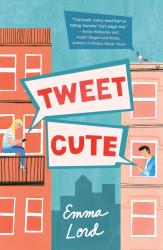
Finally! Two main characters with different, yet well-developed, personalities! I really loved Pepper and Jack, both of whom struggle with the pressures of running the social media side of their family businesses. The two are considered enemies, but fall in love on an anonymous texting app. Their busy lives with balancing swim team and good grades made each chapter entertaining. Their banter throughout the book was great, sarcastic and witty without being mean. I was kind of put off at the beginning because Jack and Pepper realized they were both fighting on Twitter very quickly, so I wondered what the rest of the book would be if the main plot was already spoiled. However, they had been clueless on more platforms than one! If contemporary enemies-to-lovers books intrigue you, this one will not disappoint.
Grade 12
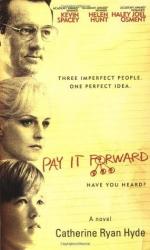
A twelve-year-old boy in a small California town named Trevor McKinney accepts his teacher's challenge to earn extra credit by coming up with and creating a plan to improve the world in the lovely and inspiring book Pay It Forward. When others hear about Trevor's idea, they immediately dismiss it because it is so simple and naive. Even Trevor starts to have second thoughts when his "pay it forward" scheme seems to fail due to a mix of bad luck and the worst aspects of human nature. This book is incredibly realistic, enjoyable, and motivating. The main characters all have distinct personalities that set them apart from one another. As you read on, you can clearly visualize the characters in your head. It's difficult to keep reading this book without taking a break. There is plenty of drama, action, and romance in the book. I adore that this book has a deep significance behind its title, Pay it Forward. This was chosen by the American Library Association for its list of the Best Books for Young Adults, and it has been distributed in more than 30 countries by being translated into more than two dozen different languages. This is a very powerful, moving story. At first, I found the style a bit difficult to read as it kept jumping around to different viewpoints. This was a different read for me at first. It had characters that were coming into the story, and didn't know how they fit in. Later it made sense Once I figured the actors read smoother.
Reviewer’s Grade 8th

Alice Oseman's Heartstopper series blew me away, so I was excited to see her take on a contemporary novel. It was... pretty good. The main character Georgia has a very relatable personality as she experiences her freshman year of college, as she tends to overthink interactions and struggles with finding her identity. The close relationship she has with friends was a really beautiful story to read about, so that part was amazing. Pip was a really funny character, and I liked how she also had depth as a side character and didn't need to be with Georgia at all times. However, the plot revolves mostly around Georgia discovering her sexuality, and that felt very repetitive. It was really cool to have asexual aromantic representation, and finding peace in that identity with the loving LGBTQ+ community. I do just think that Georgia kept having the same discussion with herself and dragging friends into experiments with her sexuality for no reason. For example, I found it weird that her roommate, Rooney, was obsessed with getting Georgia a romantic partner. Georgia mentioned being single once, and now Rooney just won't let it go? The book would have been much better if Georgia had just consulted her friends instead of dragging them into this great mission of finding a partner (but it would be a short book if everyone communicated too well!). Overall, I would really recommend this book to anyone who is struggling with their sexuality or just a new experience like going away for college. It is a great coming-of-age piece.
Grade 12
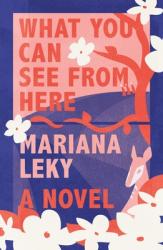
What You Can See from Here follows a small cast of characters in their small town as the world changes around them. There's Selma, the old woman who sees an okapi whenever someone is about to die. There's the optician, who is desperately in love with Selma and doesn't know how to tell her. There's Selma's granddaughter Luise, our confused and content protagonist. There's Japanese monks, ten-year-old strongmen, experts on light, and one truly unpleasant neighbor. Together, this community will learn to process love, loss, and the ties that bind us together.
This book is something strange and special. It took me a very long time to read, and yet is completely entrancing. There's a scattershot plot, yet I could follow every theme perfectly. It was translated from German, but you can hardly tell with the expert job the translator did at keeping the prose spellbinding and heartbreakingly beautiful. Honestly, the fact that the prosaic writing was still the strongest part of this book despite it being from a foreign language is a testament to the expertise of both writers. Besides the stellar writing, the characters in this book have so much life to them. Losing any of them is a genuine blow to the reader despite the large amounts of foreshadowing, since over the course of the novel we grow to know them as well as the real people in our lives. They're also funny and fascinating, making it so fun just to watch them interact and learn and grow from each other.
There are issues with this book, mainly the pacing. There are a lot of slow parts of the novel that make it difficult to stay focused. But I hesitate to condemn the book for this, since even the slower pacing feels intentional. This is a book all about the slow parts of life, about the gaps in between. A major theme is how taking the time for something or someone is very often worth it, and that's what I think about the book itself. I also appreciated that the book was willing to spend so much time on character and backstories, since it really gave me the feeling that I was living in this small town right alongside Luise. The ending of the book was also wholly satisfying. It was cyclical without being repetitive, and I find myself thinking about it and what it means from time to time.
All in all, this book was mystical and grounded and heartbreaking and hilarious. I would recommend it for anyone looking to learn a bit more about what life and love means, and how our community traps and shapes and grows us all the same.
Reviewer Grade: 12
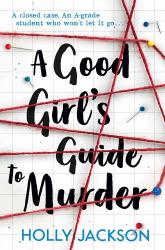
A Good Girl's Guide to Murder is a surprisingly dark and complex book. The main character, Pip, decides to investigate a "solved" murder in her town from five years ago, one that she is very close to. She teams up with the alleged murderer's brother and slowly unravels a well-hidden mystery. The book's organization made an otherwise-complicated crime easier to understand. You would read a chapter, then Pip would summarize the findings in her capstone project diary entry. This information was backed up with occasional maps and diagrams as well. Although I did get lost at some parts with there being so many names, I appreciated there being enough suspects that it was impossible to figure out the mystery until the characters did. Pip was clever and eloquent, so her handling of this personal investigation didn't take away from the story. Not to mention her friends along the way, who were pretty well-developed side characters. If you think the pacing is slow for the first part of the book, keep going!
Grade: 12
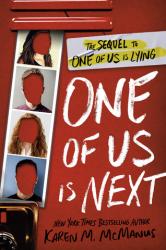
The Bayview Four, the four pupils Simon falsely accused of being the cause of his death, are no longer together, and their younger classmates and relatives are forced to play a new round of gossip-filled Truth or Dare. One year has passed since the events of One of Us Is Lying, and a game of Truth or Dare has begun. However, this isn't your typical Truth or Dare. This game can be deadly. Accepting the dare could be risky, even fatal while telling the truth might reveal your deepest secrets. This sequel had a mixed record as far as success goes. First on the list is Phoebe. It's true if you decide not to play. Phoebe’s secret is dark and it keeps her relationships and family messed up until the very end when the truth is spilled. Maeve then enters the scene, and she ought to know better than always taking the dare. However, things have become dangerous by the time Knox is ready to be tagged. The dares have turned deadly, and Maeve has learned that she cannot rely on the authorities for assistance after what happened to Bronwyn last year. or security. Although Simon is no longer with us, someone is committed to preserving his legacy at Bayview High. And the regulations have altered. The only thing I didn’t like about this book was the ending, so many things were left untouched like relationships and the truth or dare game that I feel like there must be a third book.
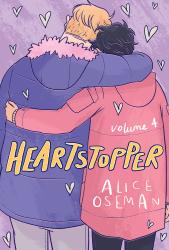
Every time I think, "Alice Oseman can't possibly outshine previous Heartstopper books," she proves me wrong! This graphic novel had beautiful art and great representation. Heartstopper: Volume Four follows Charlie and Nick as they deal with separation anxiety, saying "I love you", and working through Charlie's declining mental health. There are some really important themes introduced, the biggest being Charlie's anorexia and OCD diagnosis. This was a really emotional part of the book, but it is also crucial for more young adult books like this to spread awareness about how common mental illnesses are. Charlie and Nick's relationship is strong, but it was also cool that they discussed how spending time with other loved ones instead will strengthen their relationship. Plus, their friends are diverse, endlessly kind, and could easily be real people. It is always a joy to read this series, and I can't wait for Volume Five!
Grade 12
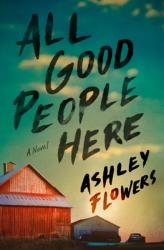
I am a big fan of Ashley Flowers from her career with audiochuck podcasts, so reading her first novel was a no-brainer. The story is about a journalist named Margot who returns to the small town in which she grew up to care for her uncle struggling with memory loss. However, the disappearance of a young girl at the same time causes Margot to reflect on the unsolved murder from her childhood, decades back. Like a true investigator, she sets out to solve both cases once and for all. Previous reviews had hinted at constant plot twists, and I definitely experienced that the whole way through. The case wasn't truly solved until literally the last page. Overall, Flowers' writing style is just as eloquent as her podcasts, with unique characters and eerie suspense. Although a few side characters, like the police officer Margot befriends, are pretty bland, more time spent on the Jacobs family character development seemed like the intention all along. And as soon as one plot twist had been announced, it was written off to make way for the next one quite suddenly. It felt as though some character explanations were still unfinished. Finally, though I hate to say it, such an abrupt ending was kind of unsatisfying. It was almost a five star book through-and-through, and just one more chapter could have done it. Nonetheless, I will recommend this book any day!
Grade 12
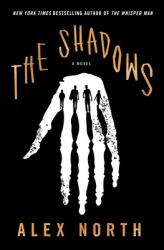
The Shadows by Alex North is about a brutal crime that rocks a small town, and haunts the ones closest to it. Paul grew up alongside three boys, two of which would later murder one of their fellow students. Twenty-five years later, Paul returns to the town to visit his dying mother and is forced to uncover deeply-hidden secrets about the murder when new crimes start to happen. I liked how each chapter revealed new clues and the final result was difficult to guess. There were several plot twists that felt well-calculated. For as exciting as the plot was, Paul was a very bland main character. The way he described his childhood with the future murderers was boring, and I didn't like the lucid dreaming theme. It seemed like the author was going for a strange cult theme, but it was muddled with the constant flashbacks to present-day. It was a good read for the Halloween season, but not my favorite otherwise.
Grade 12
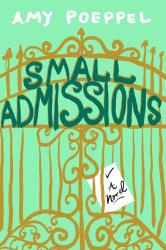
Small Admissions follows Kate Pearson, right after getting brutally dumped at an airport by her handsome, French, almost-fiancé. After the prodding of friends and family, Kate takes up a job with private school admissions, and is quickly thrown in to a mess of angry parents, bratty kids, scholarship grants, and interview skills. Throughout her journey, Kate and her friends will need to learn to let go, keep going, and grow up.
I love Amy Poeppel's books because each of her characters is so wonderfully flawed that it's a love letter to changing even as an adult. Every character in this book has a lot of issues, ranging between codependency, independency, over-confidence, under-confidence, and all possible maladies in between. This was very annoying in the beginning, but it lended to the catharsis of character development at the end. I never knew I could get so invested in a middle-aged woman making one good decision, but 300 pages of horrible decisions will do that for you! The characters themselves are amazingly vibrant and likable despite their horrible choices. There were a lot of names to remember at first, but each soon became memorable in their own way. They also interacted wonderfully throughout the book. Even though some characters got more time to shine than others, watching them bounce off each other was so fun. In particular, the female relationships in this novel get a lot of time and development, which I appreciate. The writing itself was great, not a ton of prose but very smooth and concise. The themes were phenomenal, and carried through the entire piece. There's a throughline of learning to let go of things you thought you'd always have, and while this at first seems obviously related to Kate's break-up, it applies to practically every character in the novel. People have to let go of jobs, schools, belief, and people, and it really is a love letter to letting yourself change for the better.
All in all, despite some issues with the large number of initially annoying characters, this book is phenomenal! I'd recommend this book to anyone who wants great character growth, a solid story, and a lesson on letting go!
Reviewer Grade: 12

I chose this book because I had watched the movie and was curious as to how the book was in comparison. I found that both were great overall and I don't dislike one more than the other, but the book felt more mature than the movie. Overall I really did enjoy this book, the detail in the book was a great touch, as well as was relatable. Personally, I felt a connection to some of the characters having to leave for college and trying to get the best possible score on the SAT. There is only one thing I did not enjoy about this book though, which is that there is a lot of smoking. The smoking feels a bit excessive, especially when the book follows a freshman in high school, so the amount of smoking I feel like does not portray a true aspect of what that would look like in real life. I would recommend this book to an upper teenage audience since there are mature topics such as brief sexual scenes and smoking. I gave this book 4 stars since I felt like it was very well written and an enjoyable book to read; the deduction of one star was due to the portrayal of smoking. This is honestly a great read that I personally love, I would definitely recommend it!
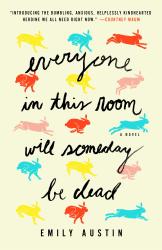
Everyone in This Room Will Someday Be Dead is a story about Gilda, who is an atheist, twenty-something years old, highly anxious, and gay. When she goes to a church after hearing about free therapy and assumed to be applying for the receptionist position, Gilda can't bring herself to correct anyone. Over her term as a Catholic receptionist, Gilda will have to lie about a dead woman, learn the lines for mass, hide her new girlfriend, and discover the hope that can come with the truth.
This book is the type of realistic fiction I usually call "a day in the life." It isn't about extraordinary circumstances or new love or changing lives. It's just someone struggling to survive the way that they always have, perhaps while working to get themselves out of it. Gilda's life is terrifying and constrictive. She's constantly afraid of what other's think of her, of people's disapproval, and yet is often so exhausted that she can barely communicate with the people she cares about. She's also, as the title foreshadows, constantly obsessing over death. Seeing the world through Gilda's eyes is strange and sad and scary. But it's also extremely enlightening. Even though Gilda is definitely an neurotic anomaly, her quirks and struggles are extraordinary relatable. The author really forces the reader to stare in the mirror, to see the fears and embarrassments that hold us back on a daily basis. One example could be Gilda's focus on death, which is almost paradoxical since her fixation on the end of her life keeps her living the life she has right now. I know that when I finished this book, it filled me with the desire to live my life to the fullest. The book also stands out with great prose, memorable characters, and vivid atmosphere!
All in all, this book might be unpleasant to read sometimes due to the depressing subject matter, but it's so educational and important that I'd recommend everyone read this at least once!
Reviewer Grade: 12